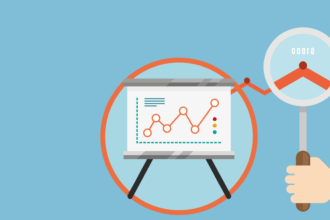Interesting panel with folks from the Venetian, Marriott and Nextag discussing customer intelligence. First they were asked about their use of analytics:
Interesting panel with folks from the Venetian, Marriott and Nextag discussing customer intelligence. First they were asked about their use of analytics:
- Nextag is an online comparison shopping engine that assembles data from 10,000 merchants online for consumers. They make money by buying clicks on search engines and then getting payments from merchants for referrals. The bigger the gap between their cost of click and value of click the more money they make. Monitoring and managing bids of high volume keywords is therefore critical. They use analytics to optimize their bid strategy and to make sure that merchants are getting high value traffic – people who actually buy something. They also use analytics to help predict how to target people who left the site with follow-up ads on other sites – re-targeting.
- The Venetian, and other gaming locations, use analytics to understand the gaming and hotel spend and behavior of customers while they are on property. They want to understand what customers want to do in the property in terms of dining, gaming etc. And they want to understand profitability of these different customers.
- Marriott is using analytics in their loyalty program. Initially (15 years ago) the focus was on proving that loyal customers, customers loyal over time, were more profitable. Once they discovered this they have been focused on applying truth to decision making for the benefit of both customers and the company.
As always with a panel I will just try and capture bullet points not the back and forth of the panel.
- Becoming more customer centric involves determining what to say, what to do, each time you interact with a customer. Each time you make a decision, a selection from available alternatives, you can improve it using analytics. These decisions might involve asking questions, commenting on customer milestones, making offers or changing prices for instance, passing on information about new services or offerings.
- For an online business, the online property is the business. To compete must personalize every aspect of the experience based on whatever is known – keywords for instance. You have to blow up your home page in other words.
- There is a clear focus on doing more things in closer to real-time – making decisions about how to interact with customers who are in the property, on the website for instance.
- Real-time decisioning and real-time actions are not always the same. You might know, for instance, that someone is a good customer and that you are therefore going to make a certain upgrade offer every time they visit. The action must be in real time even though the decision is not.
- Very few organizations have a top-down mandate that fact-based analytic decisioning is going to be the way of the future. Most have silos, legacy systems and other impediments. It is critical to force yourself to look at analytics from the perspective of the decision-maker in terms of what will help them make a better decision. I would say that you must begin with the decision in mind. And once you have a group that has been successful you can use this success to drive further success.
- Exploding data sources (mobile, web, social) has made a focus on effectively managing the data you have critical, perhaps more so than integrating external data sources for data enrichment. You have to prioritize the data that will help you drive decisions not just focus on “360 degree views”.
- Don’t model for modeling sake, model to improve results.
- 1:1 marketing is a key element of many business strategies and is basically the same as good customer relationship management and should be driven by analytics.
Copyright © 2011 http://jtonedm.com James Taylor







